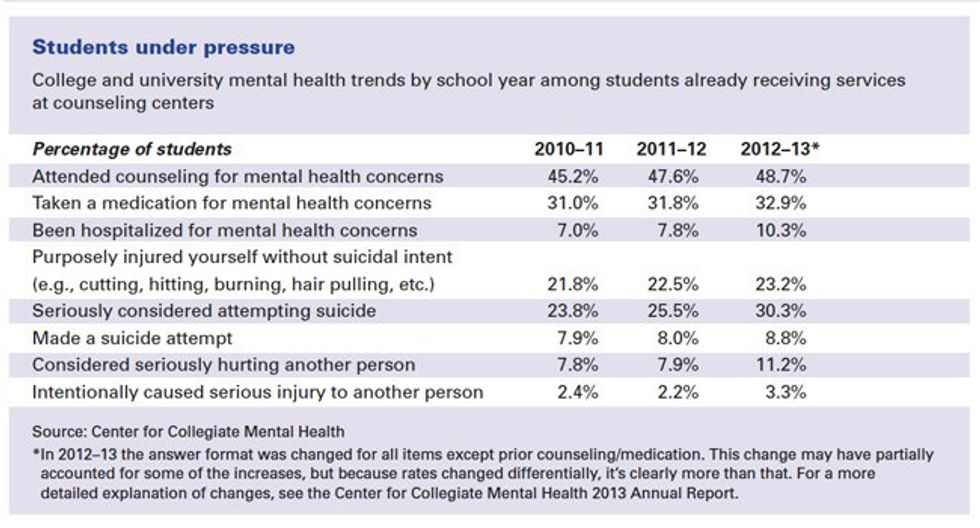May is dedicated to raising awareness about mental health, how important it is and ending the stigma that surrounds it. In particular, this year’s theme is to hear people’s stories who deal or have dealt with mental illness sometime throughout their life.
On Mental Health America’s website, there is a whole section dedicated to different mental illnesses such as anxiety, bipolar, depression, psychosis and recovery. Throughout these different categories, people can share their experiences, anonymous or not, with what they deal with every day.
Mental health is not talked about enough and there is still too much stigma surrounding it. Some stereotypes of mentally ill people are that they are violent, lazy, weak, and can never heal and lead a normal life. It is supposedly rare to be diagnosed with a problem like that. All these 'facts' are false and were created to group many different types of illnesses together when everyone really deserves their own individual attention. No one person is the same and that also goes for an individual's mental health situation.
The media is responsible for portraying a lot of these stereotypes, whether it be through television shows, movies, or the stories that they choose. Some people do not realize this at first, but once you do, you can't ignore it. Mental health stereotypes are only one of many stereotypes that the media portrays, but we’ll save that for another article.
With the notion that mental health is rarely portrayed correctly, the number of people it effects is not a surprise, especially college students, who are usually too busy with work and are too stressed to seek help.
The statistics above represent the number of students under pressure who have sought out counseling, so the number of people who did not seek medical attention is unknown in this study. The percentages of suicide attempts, hospitalizations and self-injury increased each year, as with every category. There is a serious problem here that needs to be addressed. If college students do not get treated, they may have trouble succeeding in their classes, and this will affect what happens with their career and overall future. Everyone deserves to be able to do their best, especially students, since they have a lot of stress on their shoulders already.
This monthly campaign is a great start at shedding more light on these facts instead of glorifying the misinformation that most media puts forth. People should not have to fear treatment because of judgment. Seeking help should be more normalized in society.
Mentally ill people are not crazy, lazy, or weird. They deserve respect and to have their stories told. Mental Health Month is changing what people think they know about this subject and replacing it with true facts and testimonials; hopefully spreading more compassion and sympathy.
As this month comes to an end, I highly suggest checking out http://www.mentalhealthamerica.net/may to read some personal stories about different mental illnesses and learn about what to do if you or a friend needs help.






















